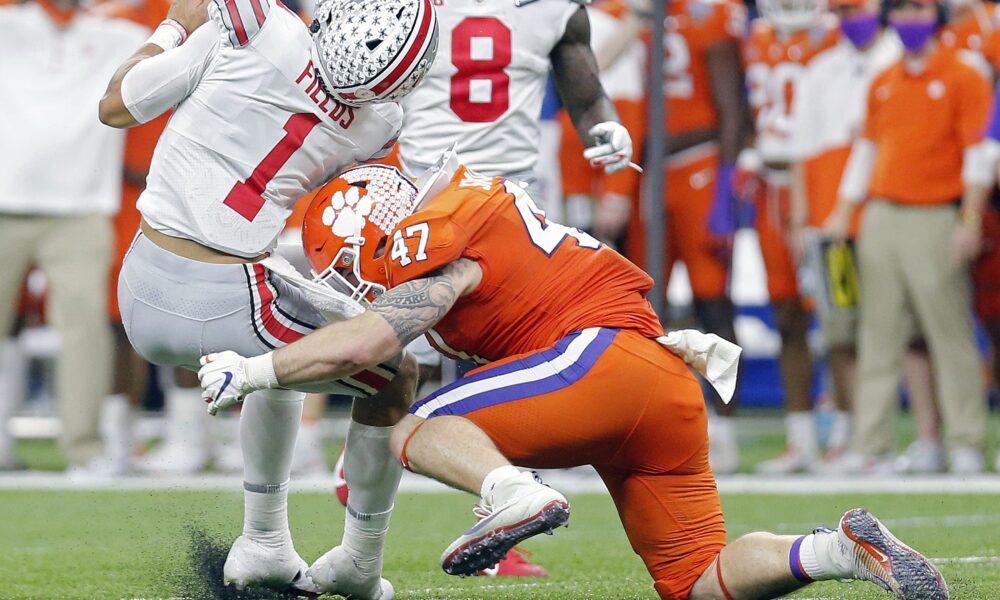In the last two years, Clemson players have been called for targeting at the worst time. Granted the rule has been put in place to protect the players, but does the penalty always fit the foul?
Currently, in college football, if a player is charged with targeting than his team is penalized 15 yards for a personal foul, and he is ejected from the game.
In last year’s national championship game, linebacker James Skalski was tossed from the game after being charged with targeting on an LSU player in the third quarter. Skalski’s absence played a big role in the Tigers’ loss that evening.
In this year’s ACC Championship game, safety Nolan Turner was ejected in the fourth quarter after he was charged with the same foul. Turner missed the rest of the game and then had to sit out the first half of the Tigers’ Sugar Bowl matchup against Ohio State.
The Buckeyes’ torched the Clemson secondary in the first half, while Turned watched on the sideline. Ohio State scored on five straight possessions to take a 35-14 lead by halftime. By the way, Skalski was again charged with targeting and tossed from the game after a second quarter hit to the ribs on Buckeyes’ quarterback Justin Fields.
“Well, I think they’ve made some adjustments, and the intent of the rule was good,” Clemson head coach Dabo Swinney said recently. “And we want to take the helmet‐to‐helmet contact out of the game.”
But Skalski was ejected from the Sugar Bowl without helmet-to-helmet contact. He hit Fields in the mid-section.
Like a lot of coaches and players around the country, Swinney believes in most cases the penalty of ejecting a player is too harsh. The NFL does penalize a team when targeting is involved in a tackle, but the player is not ejected from the game. However, he might later be fined by the league.
Of course, players cannot be fined in college football. However, coaches would like to find some other solution than ejecting a player from the game and possibly forcing him to miss half of the next game as well.
“I think they’ve made some adjustments where at least guys aren’t having to do the walk of shame and things like that,” Swinney said. “I wish there were a way to measure intent. I think they’ve done as good of a job as they can with it right now. And they have reviews and all that type of stuff and for the most part, they’ve gotten it right. So, this is definitely, you know, for the sake of the game.”
